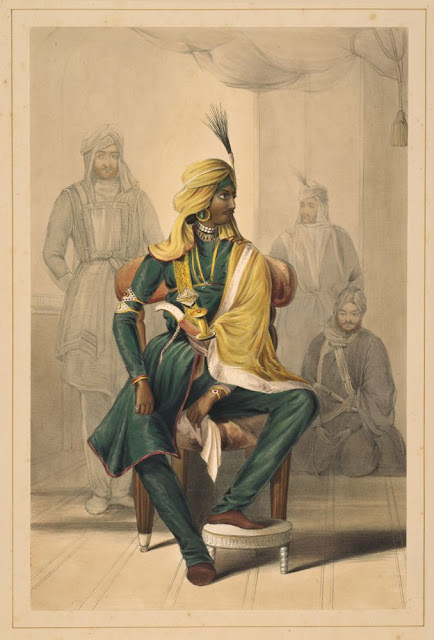NISHCHAL SINGH, PANDIT SANT (1882-1978), widely respected holy man, preacher of Sikhism and head of the Sevapanthi sect of the Sikhs (1950-78), was born on 18 April 1882, the son of Bhai Amir Singh and Mat Piar Kaur, a pious couple of Mittha Tiwana in Shahpur (Sargodha) district of Pakistan Punjab. Nishchal Singh lost his father at the age of five and was brought up under the care of his eldest brother, Mahitab Singh. Mahitab Singh, himself a devoted Sevapanthi saint, led Nishchal Singh to take to the same path. He sent him to Varanasi for higher learning.
BENI, PANDIT, a learned Brahman of Chunian, in present day Lahore district of Pakistan, was a devoted Sikh of the time of Guru Amar Das. As he first visited Goindval, he came loaded with books to demonstrate his learning. Guru Amar Das spoke to him gently: "Mere learning begetteth pride. What aideth one is humility, love and devotion." Pandit Beni, as says Sarup Das Bhalla, Mahima Prakash, had no desire left to show his skill in arguing. He bowed at the Guru`s feet and became a disciple. Guru Amar Das, says the chronicler, uttered impromptu a hymn in the Malar measure, addressed to Bhai Beni.
DEVA SINGH NAROTAM, PANDIT (d. 1924), Nirmala scholar, was the son of Mahitab Singh of the village of Janetpura, 13 km north of Jagraori (30° 47`N, 75° 28`E), in Ludhiana district of the Punjab. He received his early lessons in the Sikh texts at the hands of Bhai Gurdit Singh and then left home to continue his studies under Sant Nattha Singh of Gurdwara Tapiana Sahib at Khadur Sahib, in Amritsar district, and later under Sant Mahna Singh (d. 1890) at the Nirmala dera or monastery at Khandur, near Mullaripur, in Ludhiana district. He accompanied Sant Mahna Singh to Bhai Rupa, a village 18 km north of Rampura Phul in Bathinda district, to join the Nirmala monastery called Dera Khuharivala. Here, Deva Singh, already reputed enough as a scholar to be known as pandit (lit. learned scholar), was put by his mentor through a course of comparative study of gurbani in the light of his knowledge of Sanskrit and Vedanta.
- 1
- 2








